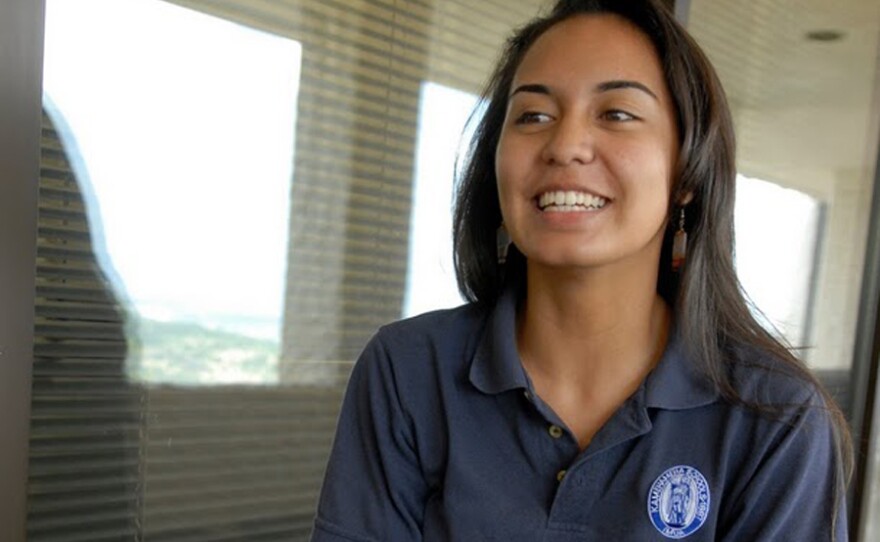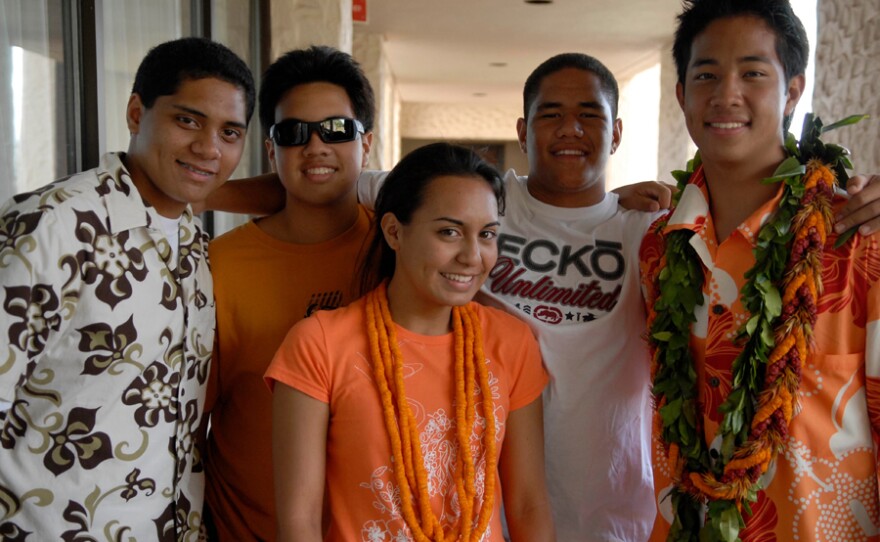Friday, May 17, 2013 at 11 p.m. on KPBS TV
Every year in Hawai‘i, 2000 high school students compete in the Kamehameha Schools Song Contest where young leaders direct their peers in singing Hawaiian music in four-part harmony. The Contest is a unique cultural celebration that has become a major local event, broadcasted live on TV, played on the radio, and streamed on the Internet.
"One Voice" shares the thrill of the competition via the personal stories of the student song directors. Through the eyes of these young Hawaiians, the documentary celebrates a culture as it has survived and flourished through the power of music and song.

Funded solely by Pacific Islanders in Communications (PIC), "One Voice" is a one-of-a-kind presentation of Hawaiian music. The melodies of a cappella choral music performed in harmony by thousands of high school students are unforgettable. This documentary follows the student song directors as they experience the trials and tribulations of competition in this annual high school event.
Given a front row seat for a unique contest in a unique setting, the audience is lead through a process that demonstrates a love for community, passion for Hawaiian music, and the story of a people who nearly lost their language and culture.
Kamehameha Schools is a statewide educational system for Native Hawaiian children of pure or part native ancestry that was founded in 1887 and endowed by the legacy of Princess Bernice Pauahi Bishop, a direct descendant of Kamehameha the Great. In 1888, the use of the Hawaiian language was prohibited at Kamehameha Schools.
Subsequently, Hawaiian language was banned from Hawai‘i’s public schools through “English-only” legislation enforced in 1896. Just over eighty years later, in 1978, the Hawaiian language was made the official language of the State of Hawai‘i.

Today, there is a tremendous resurgence of the Hawaiian language, enabling the people to experience a deeper connection to their Hawaiian identity, culture, and homeland, which is reflected in the fierce spirit of competition surrounding the Song Contest.

The annual competition involves tremendous amounts of preparation and rehearsal. Following the elected student song directors, we see how the tradition creates an indelible experience that builds class unity, instills cultural pride, and builds character. Song Contest is the event students anticipate all year long, and each year the competition among the classes is intense.
There is no other place in the world where you can find this kind of musical competition. All students at the High School in grades 9–12 participate in the performance. While the film follows the lives of several song directors as they prepare for the Song Contest, it also explores their world outside of school by meeting their families, or ‘ohana, and revealing their hopes and dreams for the future.
"One Voice" embodies the aloha spirit that is at the center of a dynamic and thriving Hawaiian society in the 21st century, while paying tribute to the long and glorious history of Hawaiian music and culture. For the students, it all culminates in one night of competition, when they sing with one voice. The documentary is a testament to their song, a film that is a living, breathing, singing celebration of the Hawaiian people.

In the style of "Mad Hot Ballroom" and "Spellbound," "One Voice" follows the song leaders for an entire year as they prepare for the competition held in March 2008. The theme for that year was Ola Ka ‘Ōlelo ‘Ōiwi O Ka ‘Āina or celebrating Hawaiian Language revitalization. During the film we experience Hawaiian culture not only as it lives in the children and their families today, but also as it has survived, grown, and flourished.
By the time the documentary reaches the culminating performance, the audience is as invested in who wins the competition as the students themselves. One night, one chance, "One Voice."






